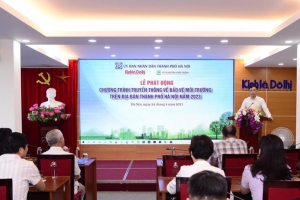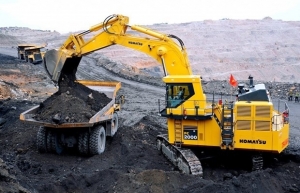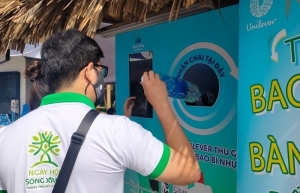Vietnam's economic growth is geared towards environmental protection
 |
On July 3, while chairing the meeting of the National Environmental Protection Planning Appraisal Council for the 2021-2030 period, with a vision to 2050, Deputy Prime Minister Tran Hong Ha stated that the master plan's content needs to be further improved and augmented with a multi-sectoral and multi-regional approach.
He said, "Environmental protection must be a step ahead of development, not behind it."
The DPM reasoned that the aforementioned master plan should be revised in accordance with the growth models of the green and circular economies to guarantee that economic development, social security, and environmental protection are in sync.
"The planning not only outlines the space, implementation roadmap, and priority objectives, but also includes implementation policies and solutions," he explained.
The plan must also reflect new global trends in terms of reducing net greenhouse gas (GHG) emissions, treating and reusing wastewater, and institutionalising the content of Resolution No.24-NQ/TW issued in June 2013 on proactively responding to climate change, bolstering natural resource management, and safeguarding the environment under the Law on Environmental Protection 2020.
DPM Ha stated that the primary objective of modern environmental protection is to maintain and preserve intact natural landscapes and biodiversity, creating a new economic sector for sustainability through the development of renewable energy, pollution control, and environmental restoration.
The national environmental protection plan for 2021-2030, with a vision to 2050, has been developed to meet the requirements of environmental protection and sustainable development based on structure, zoning-oriented management, conservation of nature and biodiversity, and territory-specific environmental warnings.
According to the Ministry of Natural Resources and Environment, the master plan outlines objectives for the establishment and administration of 256 nature reserves (covering approximately 6.7 million hectares), 13 biodiversity corridors (spanning more than 1.55 million ha), and 21 biodiversity conservation facilities by 2025. The master plan also specifies that by 2030, there will be three centralised waste treatment zones at the national level.
The objective of Vietnam's environmental protection efforts is to construct and develop circular economy models with a green and low carbon economy to fulfil the commitment to achieve net-zero GHG emissions.
 | Commencement of the 2023 Hanoi Environmental Protection Media Programme On April 24, Hanoitimes and Hanoi Department of Natural Resources and Environment began the 2023 Hanoi Environmental Protection media initiative. |
 | New decree sets environmental protection fees for mineral exploitation The Government recently issued Decree 27/2023/ND-CP regulating environmental protection fees for mineral exploitation. |
 | Unilever promotes series of activities on environmental protection In celebration of World Environment Day, Unilever Vietnam is joining with the Ministry of Natural Resources and Environment (MoNRE) to launch a campaign to clean up the environment by tackling plastic pollution and regenerating nature in Vietnam. |
What the stars mean:
★ Poor ★ ★ Promising ★★★ Good ★★★★ Very good ★★★★★ Exceptional
Related Contents
Latest News
More News
- Trung Nam-Sideros River consortium wins bid for LNG venture (January 30, 2026 | 11:16)
- Vietnam moves towards market-based fuel management with E10 rollout (January 30, 2026 | 11:10)
- Envision Energy, REE Group partner on 128MW wind projects (January 30, 2026 | 10:58)
- Vingroup consults on carbon credits for electric vehicle charging network (January 28, 2026 | 11:04)
- Bac Ai Pumped Storage Hydropower Plant to enter peak construction phase (January 27, 2026 | 08:00)
- ASEAN could scale up sustainable aviation fuel by 2050 (January 24, 2026 | 10:19)
- 64,000 hectares of sea allocated for offshore wind surveys (January 22, 2026 | 20:23)
- EVN secures financing for Quang Trach II LNG power plant (January 17, 2026 | 15:55)
- PC1 teams up with DENZAI on regional wind projects (January 16, 2026 | 21:18)
- Innovation and ESG practices drive green transition in the digital era (January 16, 2026 | 16:51)

 Tag:
Tag:



















 Mobile Version
Mobile Version